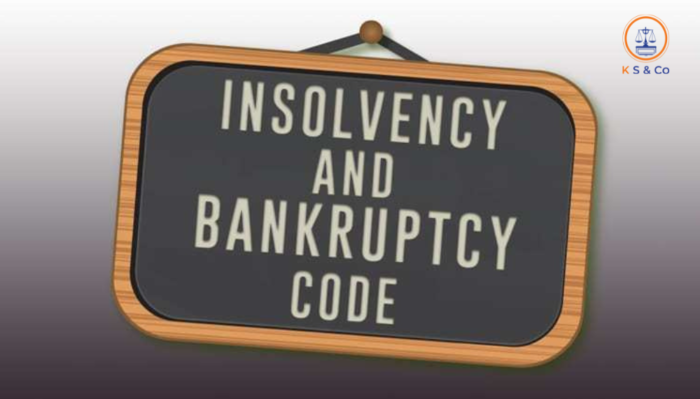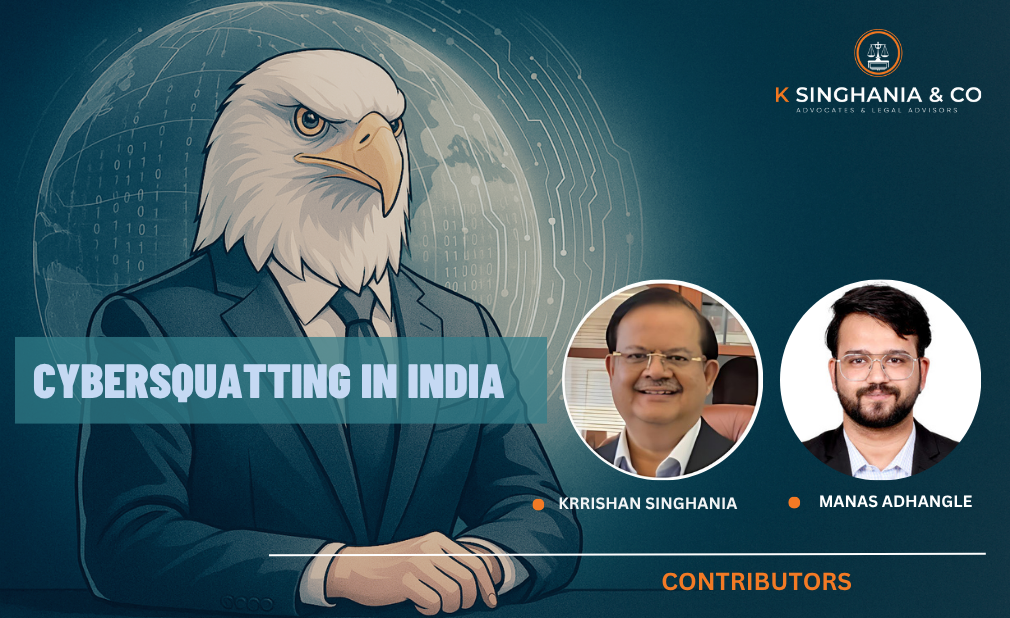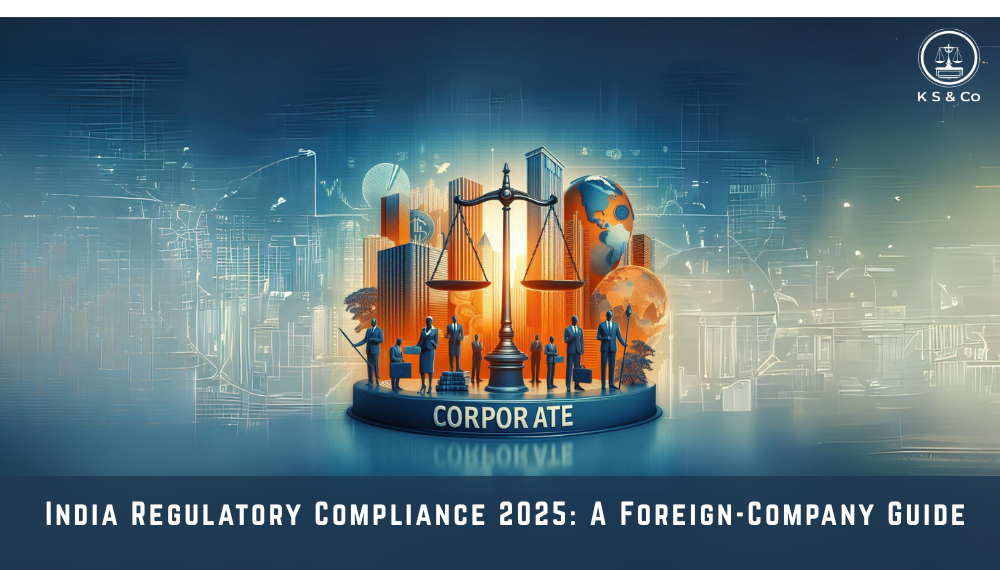PART-A: COMPANY LAW UPDATES
MCA notifies the Companies (Management and Administration) Second Amendment Rules, 2023
The Ministry of Corporate Affairs (MCA) has notified the Companies (Management and Administration) of Second Amendment Rules, 2023 (Amended Rules), effective from 27 October 2023. Pursuant to the Amended Rules, each company will designate a person (Designated Person) to report beneficial interests in the company’s shares to the Registrar of Companies (RoC).
With the updated regulations, the MCA has introduced the new provisions by adding sub-rules 4 to 8 after sub-rule 3 in rule 9 of the Companies (Management and Administration) Rules, 2014.
Every company is mandatorily required to have a Designated Person to furnish information and extend cooperation to provide information to the ROC or any other authorized officer with respect to the beneficial interests in its shares.
- A company may designate any of the following persons to fulfill the aforesaid requirement: – Company secretary if required to be appointed under the Companies Act, 2013 (CA 2013), or any key managerial personnel other than the company secretary or Every director if there is no company secretary or key managerial personnel.
- Until a company appoints a Designated Person, the following will be deemed to be the Designated Person: – Company secretary if required to be appointed under the CA 2013, or each managing director or manager in case no company secretary is appointed – Each director if there is no company secretary, managing director or manager.
- Details of the Designated Person will be provided in the annual return
- Further, If the company changes the designated person at any time, it shall intimate the same to the Registrar in e-form GNL-2 specified under the Companies (Registration Offices and Fees) Rules, 2014.
Conclusion
Every Company is required to designate one person as mentioned above who shall be responsible to report the beneficial interest in its shares to Registrar of Companies and details or such persons should be provided in annual return. If there is any change in designated person, Company shall intimate the same to Registrar in Form GNL-2. However, the Rule 9(5) mentions ‘every director’ creates ambiguity. Whether every director i.e all directors will be appointed as designated persons if there is no CS or KMP or ‘any director’ can be appointed as designated person?
Additionally, by assigning responsibility to a designated person, there is a clear line of accountability, making it easier to track and manage compliance related to beneficial ownership. This can contribute to transparency and ensure that the necessary information is readily available when needed.
MCA notifies the Limited Liability Partnership (Third Amendment) Rules, 2023
The Ministry of Corporate Affairs (MCA) has notified the Limited Liability Partnership (Third Amendment) Rules, 2023 effective from 27 October 2023 which amended the Limited Liability Partnership Rules, 2009.
Through this amendment, the MCA has introduced the requirement for all limited liability partnerships (LLPs) to maintain a register of partners at their registered office. Additionally, in line with section 89 of the Companies Act, 2013 (CA 2013), even all LLPs are now required to declare the names of persons holding an interest in the LLP (by way of contributions) through a nominee or registered holder-beneficial owner relationship.
Rule 22A of Limited Liability Partnership Rules, 2009 – Register of Partners
- Every LLP shall from the date of incorporation be required to maintain the Register of Partners in Form 4A at the Registered Office of the Company.
- In the case of an existing LLP, it shall maintain a Register of Partners within 30 days of commencement of the Rule i.e. 27th October 2023.
- The register of partners shall contain the following particulars, in respect of each partner, namely: name address (registered office address in case the member is a body corporate); e-mail address; Permanent Account Number or Corporate Identification Number; Unique Identification Number, if any; father or mother or spouse’s name; occupation; status; Nationality; name and address of nominee; date of becoming partner; date of cessation; amount and nature of contribution, any other interest if any.
- In case there is any change in the above details, the entry should be made in the register within 7 days of such change.
- If the Limited Liability Partnership makes any rectification to the register as required by this rule, under any order issued by the competent authority under the law, the reference to that order must be noted in the register, with the reasons for the rectification documented in writing.
Rule 22B Limited Liability Partnership Rules, 2009 – Declaration regarding beneficial interest
- In case where a person’s name is entered in the register, but he does not hold any beneficial interest in contribution, then he has to file a Declaration in Form 4-B, within 30 days from the date on which his name is entered in the register of partners, specifying the name and other particulars of the person who actually holds any beneficial interest in such contributions.
- In case of any change in the beneficial interest in contribution, the registered partner shall make a declaration in Form 4B, within 30 days of the date of such change.
- In case, where person holds beneficial interest in contribution of LLP but his name is not registered in register of Partners shall file declaration disclosing such interest in Form 4C within 30 days of acquiring such beneficial interest.
- In case of any change in the beneficial interest in contribution, the beneficial partner shall make a declaration in Form 4C, within 30 days of the date of such change.
- In case where, beneficial interest of registered partner is limited to the contribution stated against his name, but he does not hold beneficial interest in contribution against any other registered partner, then, he will not be required to file such declaration.
- Every LLP shall designate a partner who shall be responsible for furnishing information with respect to beneficial interest in contribution to Registrar or any authorised officer and it shall furnish in Form 4
- Unless the designated partner is appointed, every designated partner shall be responsible for furnishing information with respect to beneficial interest in contribution.
Conclusion
:
The Ministry of Corporate Affairs (MCA) aims to enhance disclosure requirements in Limited Liability Partnership (LLP) rules, akin to Section 89 of the Companies Act, 2013. This initiative seeks to fortify the disclosure norms related to beneficial interests held by individuals in LLPs. Furthermore, LLPs are now obligated to maintain a Register of Partners. This rule reflects a gradual effort by the MCA to introduce increased transparency and disclosure standards within the LLP framework.
MCA notifies the Companies (Prospectus and Allotment of Securities) Second Amendment Rules, 2023
The Ministry of Corporate Affairs (MCA) has notified the Companies (Prospectus and Allotment of Securities) Second Amendment Rules, 2023 (Amendment Rules), effective from 27th October, 2023
Through this amendment, MCA has introduced a framework governing the dematerialization of share warrants issued by public companies and the securities issued or to be issued by private companies other than small companies.
Requirements for Public Companies (In the Companies (Prospectus and Allotment of Securities) Rules, 2014 rule 9 shall renumbered as 9(1) and in furtherance to the rule 9(2) has been inserted.
Every Public Company which has issued share warrants before Commencement of Companies Act, 2013 and not yet converted into shares shall
- Inform the Registrar of Companies about details of share warrants in Form PAS-7 within 3 months of the commencement of this rule.
- Bearers of share warrants of such public companies are required to surrender their share warrants to the Company and get them dematerialized in their account within 6 months of commencement of this rule and for the same purpose, respective companies must place a notice on their website in form PAS-8 and publish the same in newspaper in vernacular language.
In case any bearer doesn’t want to surrender their share warrants, respective companies will first dematerialize such share warrants and transfer the same to the Investor Education Protection Fund established under section 125 of the Act.
After Rule 9(A) of the Companies (Prospectus and Allotment of Securities) Rules, 2014, Rule 9(B) has been inserted:
Issue of securities in dematerialized form by private companies
Every non-small private company, based on audited financial statements as of the financial year ending on or after 31 March 2023, must, within 18 months from the closure of that financial year, adhere to the following requirements:
- Issue securities exclusively in dematerialized form.
- Facilitate the dematerialization of its securities.
- Dematerialize the entire holding of securities belonging to its promoters, directors, and key managerial personnel before undertaking any offer for the issuance of securities, buyback of securities, or the issuance of bonus shares or rights offer beyond the specified timelines.
- Every holder of the securities of the private company referred to above has to comply with the rule before transferring the securities or subscribing to any securities of the private company by way of Private placement or bonus shares or right offer on or after the date when the company is required to comply with the rule.
- Rule 9B will not apply to Government Companies.
Conclusion:
Till now, this rule exclusively applied to listed and public companies. However, from now on it applies to private companies as well except small companies. This will make the process easy in case of the transfer of securities and will mitigate risks associated with forgery and theft that were prevalent with physical share certificates. Private companies, excluding small ones, must ensure the dematerialization of their securities by 30th September 2024. It is worth mentioning that the Ministry of Corporate Affairs (MCA) is systematically implementing measures to ensure that private companies comply with applicable laws and regulations.

PART- B: NCLT JUDGEMENTS
SVA Family Welfare Trust & Anr v. Ujaas Energy Limited & Ors
Principle laid down in the case:
Extinguishment of personal guarantee permissible in a resolution plan under IBC.
Factual Background
- NLCT ordered Ujaas Energy Limited (Ujaas) into a corporate insolvency resolution process (CIRP) on September 17, 2020.
- SVA Family Welfare Trust (SVA) submitted a resolution plan on July 5, 2021, approved by 78.04% of the Committee of Creditors (CoC) on August 30, 2021.
Objections by Bank of Baroda (BoB):
- BoB (a member of COC), holding 5.83% of the voting share, objected to the resolution plan for the extinguishment of secured creditors’ rights under personal guarantee agreements.
NCLT Order (January 6, 2023):
- NCLT held that CoC could not extinguish the rights of a secured creditor against a personal guarantor.
- The provision in the resolution plan was deemed prejudicial and against the law, which was rejected by NCLT for contravening Section 30(2)(e) of the IBC.
- BoB had filed Section 95 applications against personal guarantors, pending adjudication.
Appeal to NCLAT:
- SVA contended that the plan proposed payment for the release of personal guarantees and security interests under the IBC are considered.
- CoC’s commercial wisdom should be paramount; dissenting financial creditors should not interfere.
- BoB filed Section 95 applications after approval of the resolution plan.
- The CoC argued that the resolution plan, approved with the requisite majority and NCLT should not interfere.
- There are no IBC restrictions on releasing personal guarantors from obligations.
- BoB argued that the resolution plan should not have clauses extinguishing personal guarantees and maintained the right to proceed against personal guarantors since the plan did not fully cover its dues.
Issues:
The sole inquiry before the NCLAT was whether a resolution plan is permissible to include a provision that seeks to eliminate the security interest of a financial creditor through a personal guarantee.
Held:
The NCLAT, upon allowing SVA’s appeal, made the following observations:
Citing Lalit Kumar Jain vs. Union of India, the NCLAT clarified that the approval of a resolution plan does not automatically absolve a personal guarantor. However, it affirmed that a resolution plan could include a provision for the extinguishment of a personal guarantee in favor of a financial creditor. The resolution plan, which received 78.04% approval from the CoC, specified a value for the extinguishment of personal guarantees. The CoC considered and accepted these clauses, acknowledging the compensation offered by SVA for the release of personal guarantees.
Referring to its decision in Edelweiss Asset Reconstruction Company Ltd vs. Mr. Anuj Jain, Resolution Professional of Ballarpur Industries Ltd. & Ors, the NCLAT supported SVA’s position that the security interest of a dissenting financial creditor through a personal guarantee could be addressed in a resolution plan.
With the exception of BoB (holding 5.83% vote share), all other financial creditors of Ujaas had consented to relinquishing security. The NCLAT emphasized the CoC’s commercial wisdom in accepting this consensus, deeming it unchallengeable by a dissenting financial creditor.
Consequently, the NCLAT deemed the Impugned Order unsustainable, asserting that SVA’s resolution plan did not violate Section 30(2)(e) of the IBC. The NCLAT directed the NCLT to issue a fresh order approving the resolution plan, along with any necessary directives.
Comment
The NCLAT’s ruling aligns with the established legal stance articulated by the Supreme Court, emphasizing that the commercial judgment of the committee of creditors should not be subject to challenge. Primacy must always be given to the resolution plan and the collective commercial wisdom of the Committee of Creditors.
Satyabrata Mitra & Ors. …v. Earth Towne Infrastructure Pvt Ltd
Principle laid down in the case:
Application U/s 7 IBC Cannot Be Initiated Against a struck-off company; NCLT can’t Suo Motu restore the name of the company.
Facts of the Case: Joint application by Mr. Satyabrata Mitra & 145 home buyers under Section 7 of the Insolvency and Bankruptcy Code, 2016 seeking initiation of Corporate Insolvency Resolution Process against M/s Earth Towne Infrastructure Limited on account of the corporate Debtor defaulting on a financial debt of Rs. 28,64,48,786.
Arguments Made by Applicants:
- The project land was awarded to a consortium, including M/s. Earth Infrastructure Limited (EIL) and its two other subsidiaries.
- A Special Purpose Vehicle, M/s. Earth Towne Infrastructure Private Limited (Corporate Debtor) was incorporated for the project that would be the leaseholder of the project land.
- A Development Agreement was entered into by the Corporate Debtor and EIL wherein the EIL was to develop the project land. Substantial payments were made by home buyers for allotment of apartments in the project.
- Despite UPRERA registration indicating the possession date as 31.12.2021, no possession was given to home buyers.
- All attempts at service, including email and courier, were infructuous.
Decision of the Tribunal Along with Reasons:
- The Tribunal noted that the Corporate Debtor’s name was “struck off” from register by Registrar of Companies.
- Legal existence ceased, and certificate of incorporation cancelled.
- Tribunal examined the concept of “Striking off”: removal of the company’s name from the register, leading to the loss of legal recognition and dissolution under Section 248(5) of the Companies Act, 2013.
- Any assets of the company deemed to be vested in the state under the principle of “Bona Vacantia.” Liability, if any, to be discharged by directors, members, managers under Section 248(7) of the Companies Act, 2013.
- The Tribunal observed the Company’s legal existence had ceased, making it ineligible for Corporate Insolvency Resolution Process.
- The Tribunal referenced Section 248(8) of the Companies Act, 2013: Tribunal may order winding up of a struck-off company, but no power for Insolvency Resolution under IBC unless the name is restored.
- The Tribunal emphasized that it cannot exercise the power to restore suo moto and such power must be exercised through an appeal or application under Section 252 of the Companies Act, 2013.
- The Tribunal concluded that restoration steps are necessary for the present application under Section 7 of the IBC, 2016.
- It directed the applicants to take appropriate steps for restoration scheduling further consideration for 01.02.2024.
Comment:
The decision of the NCLT upholds the spirit of the Companies Act, 2013 and Insolvency and Bankruptcy code, 2016. CIRP can be initiated against a Company incorporated and registered under the provisions of the Companies Act, 2013, i.e., a “Corporate Person” owing a debt to any person (“Corporate Debtor‟). However, in the present case, due to the action of striking off, taken against the Respondent Company by the Registrar of Companies, the legal existence of the Respondent Company itself had ceased and the certificate of incorporation also stands cancelled. Therefore, it is only right to not initiate CIRP proceedings against a company whose name has been struck off from the register of companies.






